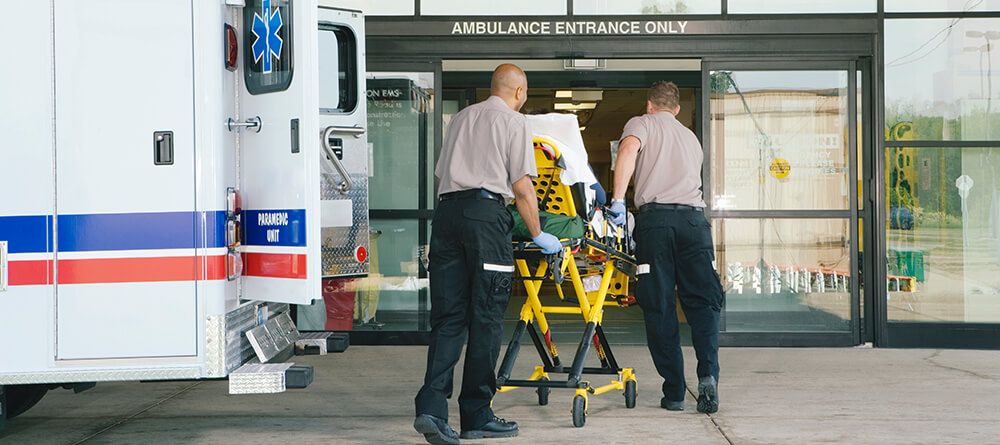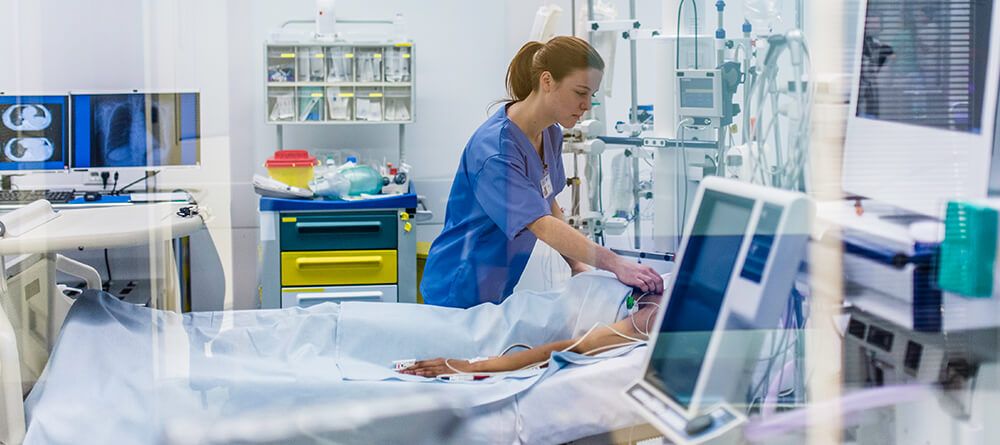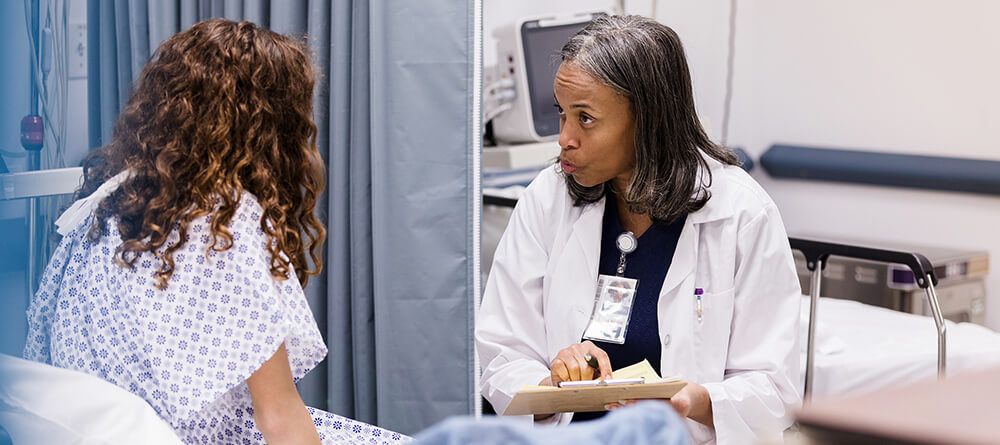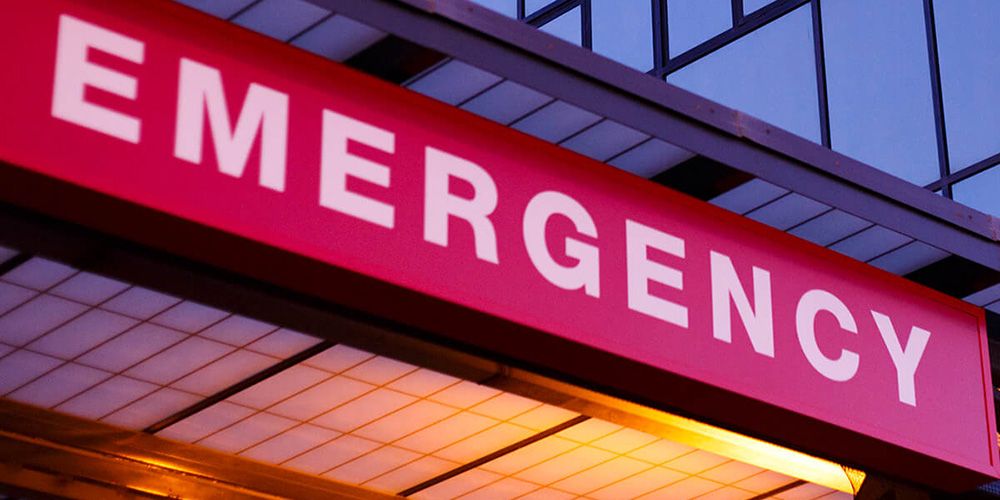Emergency department environments are often depicted as intense scenes in television and movies. But actually, being immersed in the fast-paced world of emergency medicine is one of those things you’ll never fully understand until you’re there.
To get a behind-the-scenes look at what it’s really like working in the ER, we enlisted Dr. Natalie Truong, emergency physician and St. George’s University (SGU) School of Medicine graduate. Keep reading to hear her firsthand insight from the front lines.
First, what is emergency medicine?
As its name implies, emergency medicine refers to the treatment of illness or injuries requiring immediate attention. No matter the facility, every emergency department (ED) is populated by numerous different medical professionals who are all working toward a common goal: to save and preserve the quality of life for patients who are experiencing some sort of physical or emotional duress.
The emergency department of a hospital is a busy place—not only with the range of patients coming in, but also with the variety of different healthcare professionals that emergency physicians cross paths with on a regular basis.

What do emergency physicians do?
Emergency physicians treat all patients who come through the emergency department doors, regardless of their illness or injury type. In every case, immediate stabilization takes priority. Once patients are stabilized and treated, emergency physicians may then refer them for admission to the hospital or further care from other specialists as needed.
Although you never know just what will come through those ED doors, seasoned emergency physicians learn that there’s a certain predictability to the flow of an ED. An emergency physician coming onto shift, for example, will first take reports from the doctors who are leaving. In the midst of reviewing patients who have already been placed in rooms and assessing incoming cases, there will be patients who are in need of immediate evaluation. Those experiencing emergencies like heart attacks, strokes, the delivery of a baby, or physical trauma will ultimately be prioritized and treated by the emergency doctors.
A general emergency room patient evaluation may include, in addition to a thorough history and physical exam, basic workups that include necessary laboratory tests, imaging such as x-rays and other diagnostics tests such as blood glucose levels, ECGs, etc. But rather than focusing on one patient at a time, the job of an emergency doctor is unique in that these physicians are coordinating the treatment for several patients at once. There are many different moving pieces to keep track of, making emergency physicians experts at multitasking.
After immediate stabilization and basic patient evaluations have been completed, emergency physicians are tasked with determining the next course of action. Patients may be treated and released, they may be admitted to the hospital, or they may be referred to a specialist for proper follow-up care.
Dr. Truong explains that a typical week in the ED will include patients experiencing varying levels of duress. “We usually see mixed acuity patients, from those with low to high asthma exacerbation to those with newly diagnosed metastatic cancer to those experiencing decompensated heart failure or heart attack. Then there are the walk-in traumas such as victims of violent crime,” she elaborates.
From collaboration with nurses, physician assistants, and lab technologists to interactions with EMTs, police officers, firefighters, and social workers, working in the ED requires strong interpersonal and communication skills.

What is it like working as an emergency physician?
As you’re beginning to see, working in the ED is anything but predictable. As much as medical school will equip you with the knowledge needed to diagnose and treat patients, it can’t prepare you for the high-stakes nature of the job.
Dr. Truong recalls just how jarring it can be at first. “I had never experienced that intense a rush of adrenaline, fear, anxiety, and uncertainty,” she says. Learning about cardiac and respiratory arrests was one thing, she notes, “but to stand in front of someone undergoing one is an entirely different story.”
While the specific circumstances of any given shift are unpredictable, emergency doctors do experience some sought-after stability and flexibility when it comes to their work weeks. Physicians in this specialty generally have pre-set shifts with fixed working hours. They will find themselves working evenings, weekends, and holidays as needed, but the typical emergency physician works between three and five shifts per week.
What skills are needed to work in emergency medicine?
All medical doctors begin with the same training in medical school. It’s not until the medical residency where physicians-in-training really begin to hone their skills in a particular area of practice. Before you pinpoint emergency medicine as your specialization, Dr. Truong suggests doing some personal research. “Talk to as many people as you can who have experience working in the ED. This will help you grasp the expectations and see if it’s the right path for you,” she advises.
In the ED, every shift will be different. And while not knowing what to expect might be a source of stress for some, many emergency doctors find the mystery to be exciting. These are physicians who love a challenge. You literally don’t know what will come through the door next- a mom carrying a febrile infant, an 80-year-old with chest pain or a young child with a head injury.
“To be a great emergency doctor, you have to have the drive, the discipline, the perseverance, and the passion,” Dr. Truong explains. “You will do well if you are a self-starter who continually educates yourself.”

In addition to thriving in a fast-paced, fluctuating environment, skilled emergency physicians must have strong critical-thinking abilities. You’ll often have to make decisions based on limited information. Patients undergoing some kind of medical emergency may be unable to fully communicate their symptoms or they could even be unconscious. The ability to keep a level head while running through a mental checklist of symptoms, diagnoses, and treatment plans is a skill that not everyone has.
It’s also true that emergency doctors work with a revolving rotation of medical personnel during a given shift. Effective teamwork skills are critical, whether it be utilizing strong interpersonal communication or practicing patience. Emergency room physicians get interrupted constantly by members of their team providing patient updates, sharing test results, inquiring about next steps, and more.
Are you cut out for working in the ER?
Studies have revealed high rates of career satisfaction among emergency physicians. And despite their susceptibility to burnout and stress due to the high-pressure environment, a majority of emergency doctors report they’re happy with their choice of specialty.
“I could never have imagined I’d enjoy what I do more every day,” Dr. Truong says. “Emergency medicine is a challenging but fulfilling journey. If you work hard, it will definitely pay off.”
If learning more about working in the ER has you eager to pursue a career in emergency medicine, there are a number of personal characteristics you may already possess that will help you excel. To see if you have what it takes, check out our article “8 Signs You’d Thrive as an Emergency Physician.”


